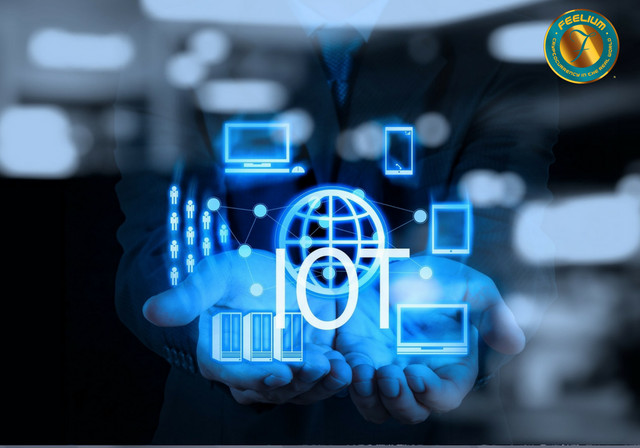The Internet of Things is changing much about our present world. IoT is involved in almost everything, starting from the way we drive, to how we make purchases, and even how we get energy for our homes. The IoT is an enormous network of connected things and people – all of which assemble and share data about the way the network is used and about the environment around them.
“In God we trust. All others must bring data” – W. Edwards Deming
IoT includes a vast number of objects and things - from smart microwaves, which automatically cook your food, to self driving cars whose smart sensors can detect objects in your path, to wearable fitness devices that measure your heart rate and the number of steps you take in a particular day, and use that information to suggest fitness exercises for you.
Using centralized technologies, the identity of our device is maintained by the service providers who are responsible for the life of the device and all interactions involving them. This maintenance is costly, takes time and places the device in the hands of the service provider. If that service provider goes out of business, the device will be lost along with the data.
Instead, the use of blockchain technology will govern the user’s identity on the devices. Service providers link devices and people together and smart contracts decide who can use the devices based on the set of rules encoded.
Let us take a look at some of the applications of IoT:-
Shared Homes/ Spaces
Whether you are a host or guest, you need security. If you are the owner you would expect your rental space to be in the care of someone who would take care of your space and keep it in a good condition. You would want your rent on time. If you are a guest, you would expect the space you get to be safe.
Using blockchain in home sharing space offers security, privacy and control. It is not just a fancy technology. It is a way to get freedom to pick places and to safely choose your bookings, listings and get real reviews.
Solar Community
New York is conducting an experiment for a community to use a blockchain system to record the production of solar energy and enable the purchase of excess renewable energy credits. The device has an identity and builds a reputation through its past records and exchange. People in a solar community, hence can share maintenance cost, and trust that the devices are recording actual solar production.
Wastewater Catchment Systems
Smart contracts can save the identity of a user performing maintenance on a shared system. For example, if an individual must fulfill six maintenance appointments per year, the machine has the ability to alert the user whenever a checkup is required. If the user cannot fulfill the requirement, the system may shut down their water supply.
The blockchain systems are better than the present centralized systems as blockchain technology increases efficiency, security and usage of the world resources in an organized way. In many ways the blockchain and IoT can be termed as a perfect pair. Today, blockchain technology is securing the digital market worldwide and the smart contracts are significant solutions to IoT’s security problems. Blockchain technology is gaining popularity and is adopted by several industries, IoT being one of them. By breaking free of a central system, the decentralized system is bound to have many users.
Feelium is a blockchain technology platform designed for real world solutions. The platform offers smart contracts and digital wallets that make digital interactions secure and fast..png)